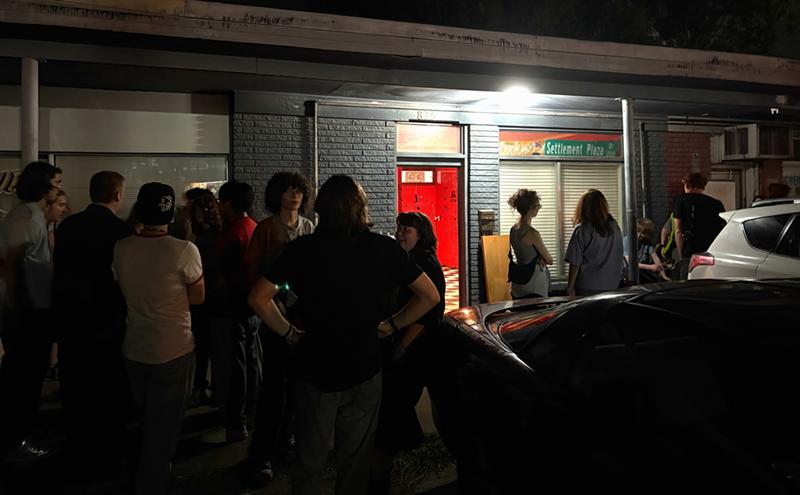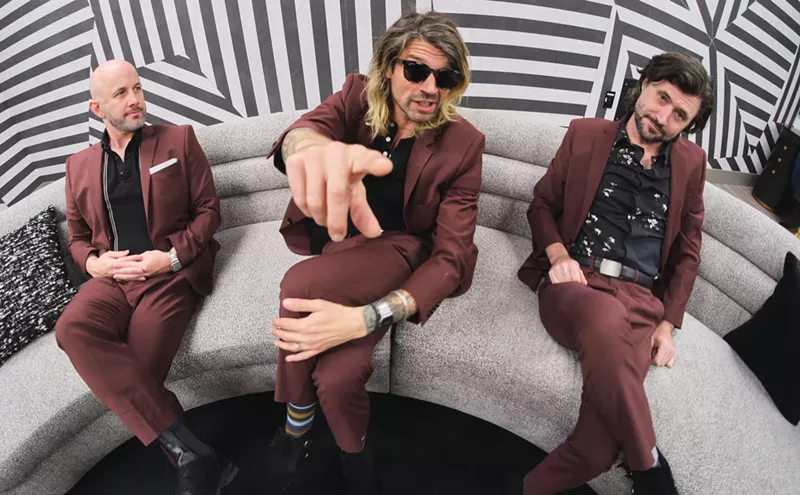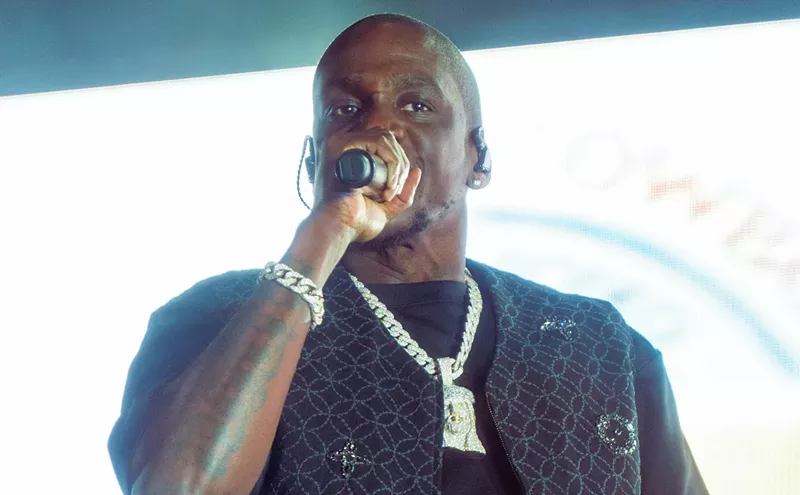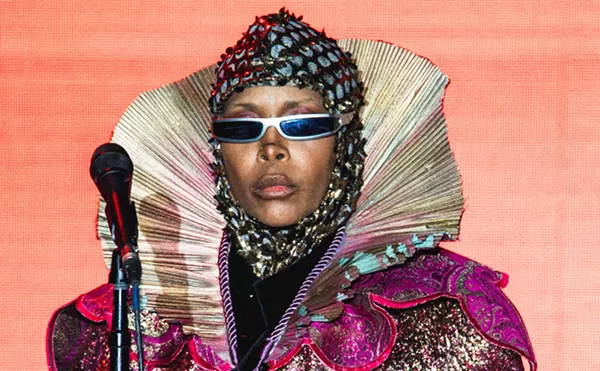Of all the generic pop-rock bands that dominated the airwaves in the 1990s, Sister Hazel was one of the most successful. In 1997, you couldn't go more than about five minutes without hearing "All for You," the year's most popular song and Sister Hazel's biggest hit. You're probably unaware of this, but the band has released six albums since 2000, and they're back this year, after a six-year break from recording, with an entirely different sound.
Or at least that was the intent. On February 19, Sister Hazel released Lighter in the Dark, the band's first country effort. According to Taste of Country, frontman Ken Block and his bandmate Drew Copeland have been writing in Nashville for the past 10 years, and the transition into country was a pretty natural fit. Unfortunately, the resulting album isn't exactly much to write home about.
The tracks on Lighter in the Dark sound like every other Sister Hazel song you've ever heard in your life, thanks in large part to Block's distinctive voice. In the nearly 20 years since Sister Hazel's biggest success, it's pretty clear that they've not deviated much from the original formula. What this album does feature, though, is a sort of doubling-down on the folksiness that made Sister Hazel such a stark contrast to the grungier acts of the mid-1990s.
"I'm not the king of America, I've got a blue-collar heart," Copeland sings over a plucky rhythm on "Something to Believe In," pandering to Middle America in the way required by country music law. With this record, Sister Hazel have fully embraced the more Southern rock elements, transforming from folksy hippies into good ol' boys in what has to be a cunning grab for relevance.
These days, it's hard for rock bands to make it in the mainstream. At present, the No. 2 spot on Billboard's Hot Rock Songs chart belongs to Coldplay, a sad reality that puts rock in a similar place as country when it comes to artistic integrity. In looking at the other acts on that chart — Elle King, Twenty One Pilots and Fall Out Boy — there's really no place for a band like Sister Hazel to fit in.
The same is also true for the world of pop, where electronic influence dominates and soaring ballads reign. There's no way that a band like Sister Hazel is even remotely able to compete with Justin Bieber, Adele or Rihanna for a spot in the top 10. Perhaps this album would make sense in the bizarre mishmash of albums that is the Billboard folk chart, but there's no way it could manage to displace Hozier or (surprisingly) Courtney Barnett.
But country? That almost makes perfect sense. The country airwaves are currently full of bland mediocrity, and "Karaoke Song," featuring former Hootie & the Blowfish frontman turned country star Darius Rucker, would fit in nicely with Keith Urban, Cam or scores of other country artists who are so boring that most people don't bother to learn their names.
It is worth noting, though, that Lighter in the Dark is the antithesis of bro-country. There aren't any suntanned legs on tailgates here, just motivational platitudes ("Forget about your worries and just let the music play," goes one lyric in "Karaoke Song") and more poetic versions of those boring old stories that your dad used to tell you about his hometown. Sister Hazel has always represented a softer sort of masculinity, one that's decidedly better than the overpowering machismo that exists now.
With this album, Sister Hazel takes its place as the dad rock of country music. It's safe, boring and a little dated. If it were a better album, it would be a guilty pleasure, sort of like "All for You" was. It was a sappy, romantic song that was entirely lovable, and these tracks just don't have the same charm. The cheese factor is high here, which isn't an inherently bad thing, but it ultimately doesn't merit much more than one listen.
There isn't anything inherently offensive about Lighter in the Dark or any of its tracks. The instrumentation is solid, the vocals aren't bad and the writing certainly isn't the worst to appear in country music in the past couple of years. These pieces don't quite add up to a good record, but it wouldn't be a surprise if this album picked up plenty of radio airplay.
It already appears to have been a smart move: After a prolonged absence from the charts, Lighter in the Dark currently sits at No. 4 on the Billboard Country Albums chart without any major label support. "Something More Than Beautiful," the album's lead single, is a "Hot Track" on iTunes. That's a pretty big leap from No. 80, which is where the band's 2010 release Heartland Highway peaked.
And that seems like a pretty dangerous precedent to set. Country music is in bad enough shape without having to worry about over-the-hill rockers diluting the genre in pursuit of a cash grab. Sister Hazel didn't fundamentally change their sound or introduce a new take on country's aesthetic, they just recorded their same old music and slapped a country label on it to make a little cash. If this trend continues, look forward to Nickelback's first country album later this year.

Audio By Carbonatix
[
{
"name": "GPT - Billboard - Slot Inline - Content - Labeled - No Desktop",
"component": "21721571",
"insertPoint": "2",
"requiredCountToDisplay": "2"
},{
"name": "STN Player - Float - Mobile Only ",
"component": "21861991",
"insertPoint": "2",
"requiredCountToDisplay": "2"
},{
"name": "Editor Picks",
"component": "17105533",
"insertPoint": "4",
"requiredCountToDisplay": "1"
},{
"name": "Inline Links",
"component": "18349797",
"insertPoint": "8th",
"startingPoint": 8,
"requiredCountToDisplay": "7",
"maxInsertions": 25
},{
"name": "GPT - 2x Rectangles Desktop, Tower on Mobile - Labeled",
"component": "22608066",
"insertPoint": "8th",
"startingPoint": 8,
"requiredCountToDisplay": "7",
"maxInsertions": 25
},{
"name": "Inline Links",
"component": "18349797",
"insertPoint": "8th",
"startingPoint": 12,
"requiredCountToDisplay": "11",
"maxInsertions": 25
},{
"name": "GPT - Leaderboard to Tower - Slot Auto-select - Labeled",
"component": "17357520",
"insertPoint": "8th",
"startingPoint": 12,
"requiredCountToDisplay": "11",
"maxInsertions": 25
}
]











